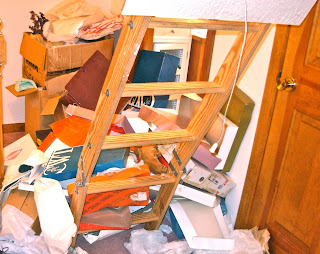My Mug Does
Not Runneth Over
 |
| I love my Fiestaware cups, but are they practical when I want to drink some serious eye-opening coffee? |
Dust
covered the rim of the blue Fiestaware cup sitting on my kitchen shelf, making
the color appear a pale gray. “Why don’t I use those cups, and even a saucer,
for my morning coffee?” I asked myself. “My daily java routine could use a
touch of elegance.” I washed a blue cup and saucer and placed them next to the
coffee pot as a reminder to drink from them the next day when I sleepwalked into the kitchen.
I
also formed a little riff in my brain about how often I gulp from a large mug
and how the super-size culture has affected America. I resolved to liberate my
mug and myself from what I perceived as yet another example of wretched excess.
 |
| Choices, choices...A cup or a mug? |
Twelve
minutes after I pushed the start button at 6 a.m. today, my coffee was ready. I
poured the hot liquid into my coffee cup—not to be confused with a mug—and
settled in for my first caffeine fix of the day. I sat at my writing desk, took
a few swallows, wrote a few lines, reached for the cup to take another sip, and
it was empty! I did the instant replay of walking back into the kitchen,
filling the cup, adding sugar and milk, and returning to my writing desk in my
room. I took a few swallows, wrote a few more lines, reached for the cup to
take another sip—empty again?
I
retraced my steps to the kitchen, put the cup and saucer in the sink, took a mug out of
the cabinet, poured a generous amount of coffee into it, returned to my writing desk, and got down to the
business of the day.
 |
| The mug wins! |
I
decided that wretched excess has nothing to do with drinking my coffee from a
mug. I’m self-employed, so most mornings I don’t have to dash out the door. My
fifteen-year-old routine of drinking a mug of coffee, writing, drinking
some more coffee, and writing some more cannot easily be broken just because I
come up with some absurd motion that my mornings would be more refined if I
drank from a lovely cup and placed said cup on a saucer.
A
mug it is from now on, unless I’m in a rather Victorian mood, in which case I’ll
bring out the bone china, brew a pot of tea, bake some scones, and really put
on some airs.






















